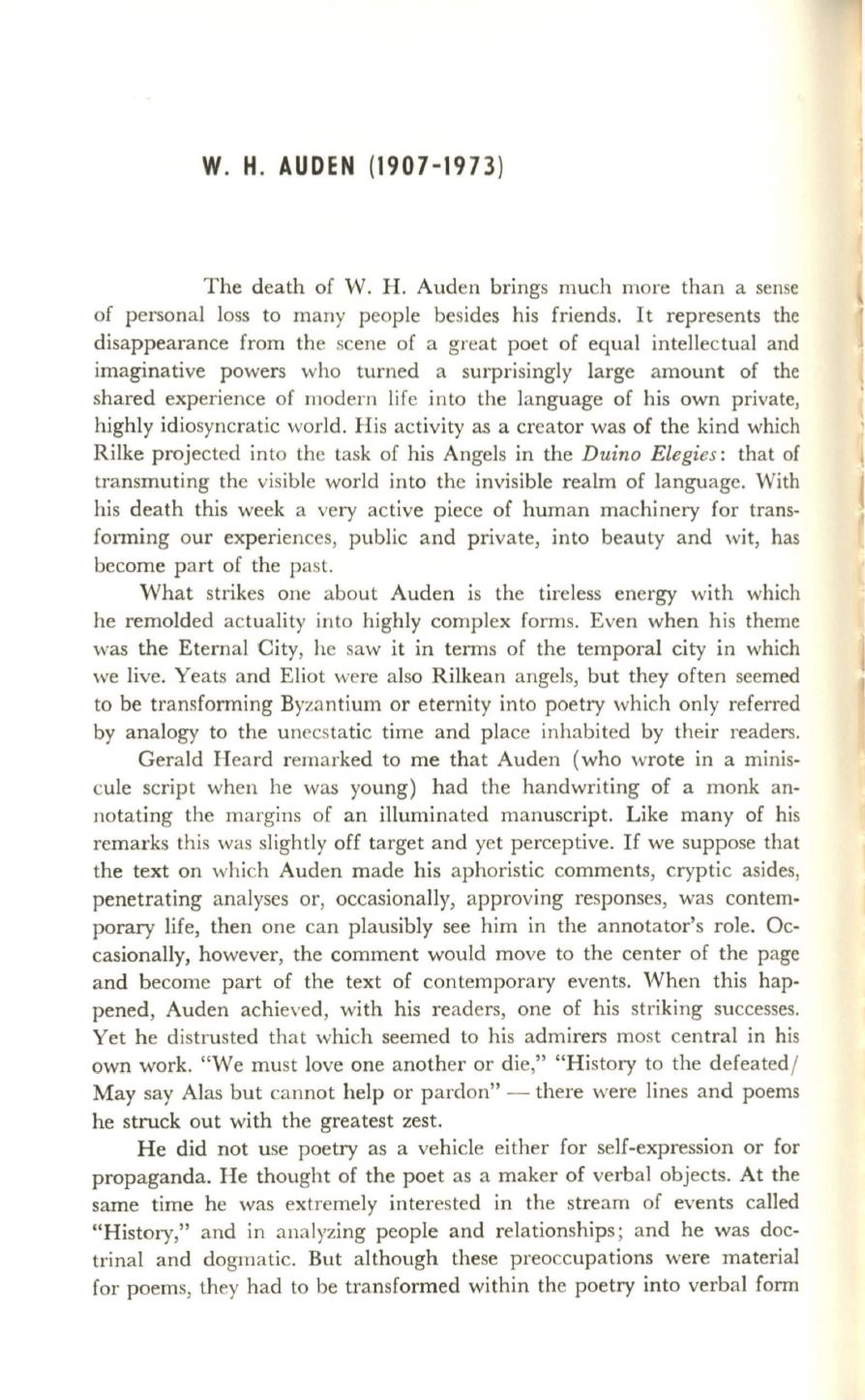
W. H.
AU DEN
(1907- 19 73)
The death of W. H. Auden brings much more than a sense
of personal loss to many people besides his friends. It represents the
disappearance from the scene of a great poet of equal intellectual and
imaginative powers who turned a surprisingly large amount of the
shared experience of modern life into the language of his own private,
highly idiosyncratic world. His activity as a creator was of the kind which
Rilke projected into the task of his Angels in the
Duino Elegies:
that of
transmuting the visible world into the invisible realm of language. With
his death this week a very active piece of human machinery for trans–
forming our experiences, public and private, into beauty and wit, has
become part of the past.
What strikes one about Auden is the tireless energy with which
he remolded actuality into highly complex forms. Even when his theme
was the Eternal City, he saw it in terms of the temporal city in which
we live. Yeats and Eliot were also Rilkean angels, but they often seemed
to be transforming Byzantium or eternity into poetry which only referred
by analogy to the unecstatic time and place inhabited by their readers.
Gerald Heard remarked to me that Auden (who wrote in a minis–
cule script when he was young) had the handwriting of a monk an–
notating the margins of an illuminated manuscript. Like many of his
remarks this was slightly off target and yet perceptive.
If
we suppose that
the text on which Auden made his aphoristic comments, cryptic asides,
penetrating analyses or, occasionally, approving responses, was contem–
porary life, then one can plausibly see him in the annotator's role. Oc–
casionally, however, the comment would move to the center of the page
and become part of the text of contemporary events. When this hap–
pened, Auden achieved, with his readers, one of his striking successes.
Yet he distrusted that which seemed to his admirers most central in his
own work. "We must love one another or die," "History to the defeated /
May say Alas but cannot help or pardon" - there were lines and poems
he struck out with the greatest zest.
He did not use poetry as a vehicle either for self-expression or for
propaganda. He thought of the poet as a maker of verbal objects. At the
same time he was extremely interested in the stream of events called
"History," and in analyzing people and relationships; and he was doc–
trinal and dogmatic. But although these preoccupations were material
for poems, they had to be transformed within the poetry into verbal form


